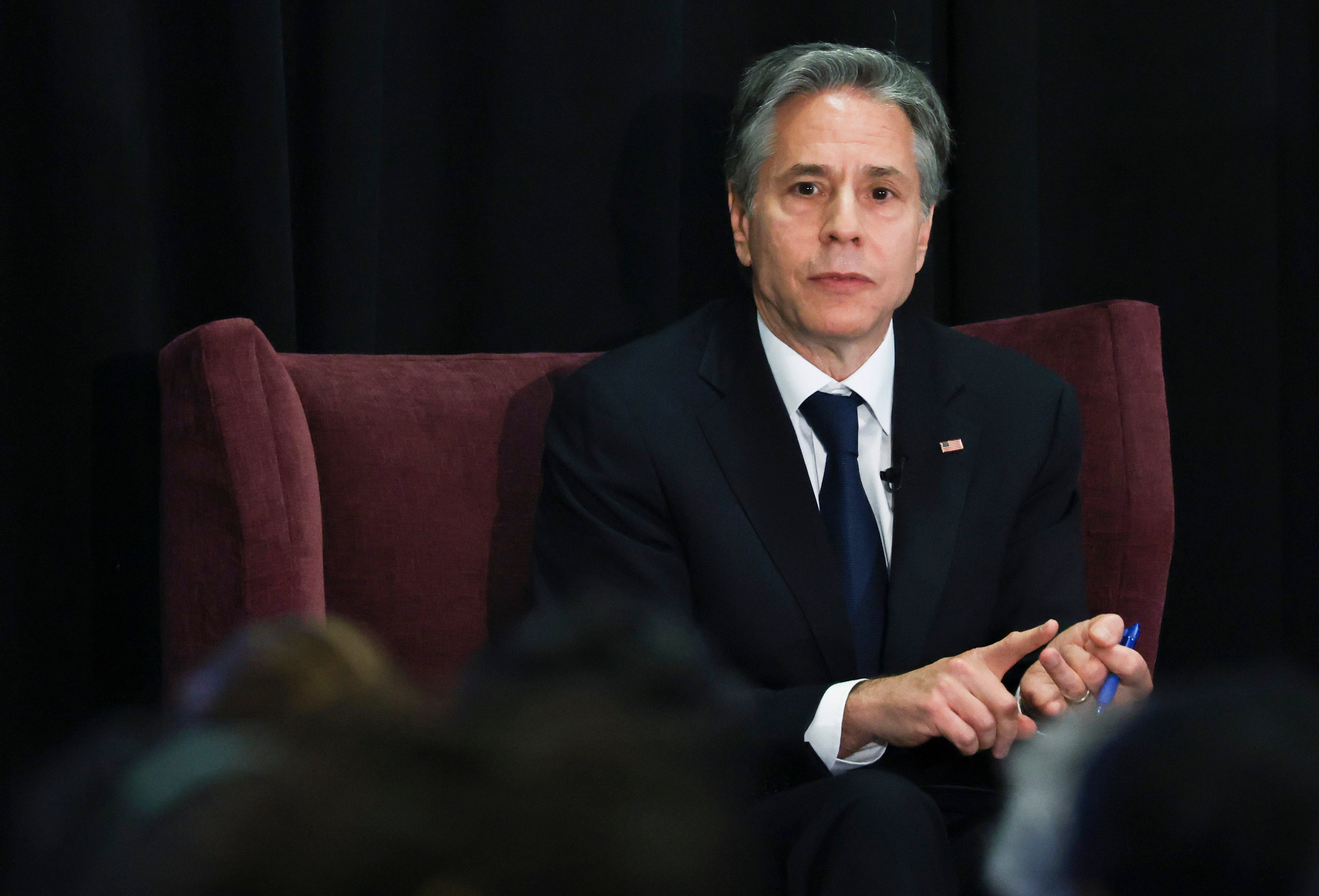Salvadoran leader rebuffs Blinken effort to bolster summit
In the run-up to this week's Summit of the Americas, President Nayib Bukele of El Salvador rebuffed attempts by U.S. officials to set up a phone call with Secretary of State Antony Blinken

Your support helps us to tell the story
From reproductive rights to climate change to Big Tech, The Independent is on the ground when the story is developing. Whether it's investigating the financials of Elon Musk's pro-Trump PAC or producing our latest documentary, 'The A Word', which shines a light on the American women fighting for reproductive rights, we know how important it is to parse out the facts from the messaging.
At such a critical moment in US history, we need reporters on the ground. Your donation allows us to keep sending journalists to speak to both sides of the story.
The Independent is trusted by Americans across the entire political spectrum. And unlike many other quality news outlets, we choose not to lock Americans out of our reporting and analysis with paywalls. We believe quality journalism should be available to everyone, paid for by those who can afford it.
Your support makes all the difference.It was the sort of diplomatic rebuff a small country like El Salvador generally can rarely afford to make.
In the run-up to this week's Summit of Americas in Los Angeles, senior U.S. officials frantically worked the phones seeking to boost attendance amid threats of a boycott from Mexico's president and other leftist leaders over the exclusion of Cuba, Nicaragua and Venezuela.
Among those efforts, the State Department sent a message that Secretary of State Antony Blinken wanted to speak with President Nayib Bukele last weekend, a rare show of comity from a Biden administration that for months had been blasting the Central American leader as a power-hungry populist.
“Participating in the Summit is a very good opportunity for President Bukele to explain his perspective to the Salvadoran community in LA and Joe Biden,” Assistant Secretary of State Brian Nichols wrote in a message to Bukele's ambassador in Washington.
In the end, Bukele didn't take the bait and the call never happened, said two people close to the Salvadoran president, who insisted on being given anonymity to discuss sensitive diplomatic dealings.
Another request to set up a call with Blinken, made through the U.S. Embassy in San Salvador, was similarly rebuffed, according to the two people, one of whom showed The Associated Press a copy of the messages.
The concerted effort by Blinken to reach out to one of the Biden administration's frequent targets in Latin America underscores the lengths to which U.S. officials went to avoid an embarrassing flop at the summit.
It also demonstrates how controversial leaders like Bukele, who skirted criticism from the Trump administration in exchange for wholesale support of its crackdown on migration, have struggled to adjust to a return to a traditional foreign policy under Biden.
Bukele is one of 11 Western Hemisphere leaders who have stayed away from the summit, which is taking place on U.S. soil for the first time since it was launched in 1994.
Some, like the leaders of Mexico, Honduras and Grenada, are doing so to protest the exclusion of fellow leftists from Cuba, Nicaragua and Venezuela. Others, like Bukele and Guatemala's Alejandro Giammattei, are frustrated with Washington's finger wagging over corruption and human rights abuses.
“It's clear the Biden administration wasn't sensitive to how these leaders were feeling,” said Michael Shifter, who recently retired as head of the Washington-based Inter-American Dialogue. “You can be tough on corruption, but there's a tradeoff, and you shouldn't expect others to play along just because there's a phone call from the White House. That's the reality that the Biden team doesn't really grasp.”
Shifter pointed out that both Bukele and Giammattei were not among the more than 100 leaders invited to attend last year's Summit for Democracy, which included leaders of authoritarian bent like Brazil's Jair Bolsonaro and Rodrigo Duterte of the Philippines.
“These are things these leaders don't forget,” Shifter said.
The State Department declined to comment when asked Thursday about the outreach to Bukele.
But Bukele’s lack of a response to Blinken’s request for a phone call convinced U.S. officials there wasn't much they could do to improve relations and the U.S. eventually dropped the diplomatic outreach, said a person familiar with the effort.
Bukele has won strong support from Salvadorans by taking a tough stance against gangs and going after traditional politicians in charge during decades of corrupt rule that followed the end of the country’s bloody civil war.
His critics in the U.S. say that in concentrating power Bukele is undermining already fragile institutions. Since Biden has taken office the U.S. has sanctioned several of his top aides over corruption.
A similar dynamic has played out in neighboring Guatemala, where Blinken recently said Giammattei's choice for attorney general was engaged in “significant corruption.”
The Biden administration has downplayed the leader absences, pointing to a summer visit to the White House by Mexican President Andrés Manuel López Obrador as one example of how countries in the region will continue to work with the United States on migration and other issues.
“The substantive work of the summit has in no way, shape or form been touched or adjusted or reduced by the participation question," National Security Adviser Jake Sullivan told reporters Wednesday aboard Air Force One on its way to the summit.
___
Associated Press writer Matt Lee in Washingon contributed to this report.